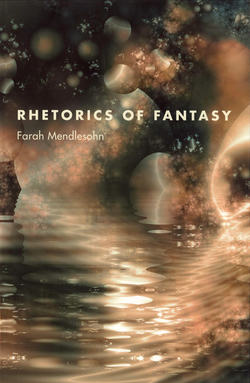Читать книгу Rhetorics of Fantasy - Farah Mendlesohn - Страница 15
На сайте Литреса книга снята с продажи.
Intrusion Fantasy
ОглавлениеIn intrusion fantasy the fantastic is the bringer of chaos. It is the beast in the bottom of the garden, or the elf seeking assistance. It is horror and amazement. It takes us out of safety without taking us from our place. It is recursive. The intrusion fantasy is not necessarily unpleasant, but it has as its base the assumption that normality is organized, and that when the fantastic retreats the world, while not necessarily unchanged, returns to predictability—at least until the next element of the fantastic intrudes.
Fantasy and “reality” are often kept strictly demarcated: in some fictions, those set apart from the protagonist may not be able to perceive the fantastic even as they experience its effects. These structural characteristics of intrusion fantasy are mimicked by the language we can associate with this form. Because the base level is the normal world, intrusion fantasies maintain stylistic realism and rely heavily on explanation. Because the drive of intrusion fantasy is to be investigated and made transparent, description is intense, and it is assumed that we, the readers, are engaged with the ignorance of the point of view character, usually the protagonist. One consequence of this ignorance is that the language reflects constant amazement. Unlike the portal fantasy, which it otherwise strongly resembles, the protagonists and the reader are never expected to become accustomed to the fantastic.
The required awestruck or skeptical tone is tricky and may contribute to the preference for stylistic realism in order to maintain the contrast between the normal world and the fantastic intrusion. It also may explain the tendency of the intrusion fantasy to continually introduce new protagonists, and to up the ante on the nature or number of the horrors. Horror, amazement, and surprise are difficult to maintain if the protagonist has become accustomed to them. Escalation—of many kinds—is an important element of the rhetoric.
Intrusion fantasy, although usually associated with “real world” fantasy, can be set within the immersive. If such is the case, the same rules apply: there is a clear line between the constructed “normality” and the intrusion. Protagonists know what is normal even if we do not and express this clearly and forcefully; the intrusion must be defeated, and the actors remain acted upon. The innocence of the protagonists, however, is combined with their competence within the immersive fantasy; because their negotiation of their own world is fundamentally interesting to the reader, characters become actors within the immersive fantasy as well acted upon by the intrusion. The technique can be seen in Alexander Irvine’s A Scattering of Jades (2002) in which an Aztec god is reintroduced to 1840s New York. Here, the historical city is our fantasy land.
